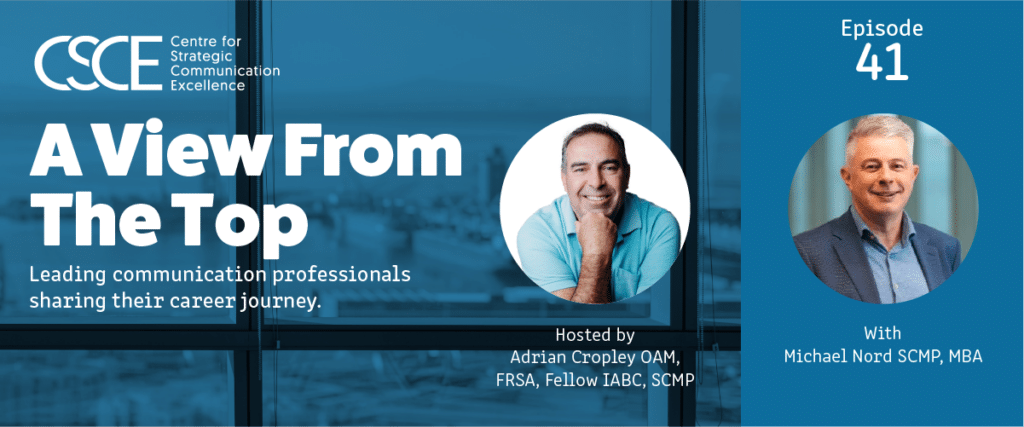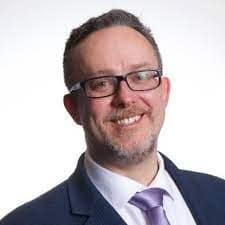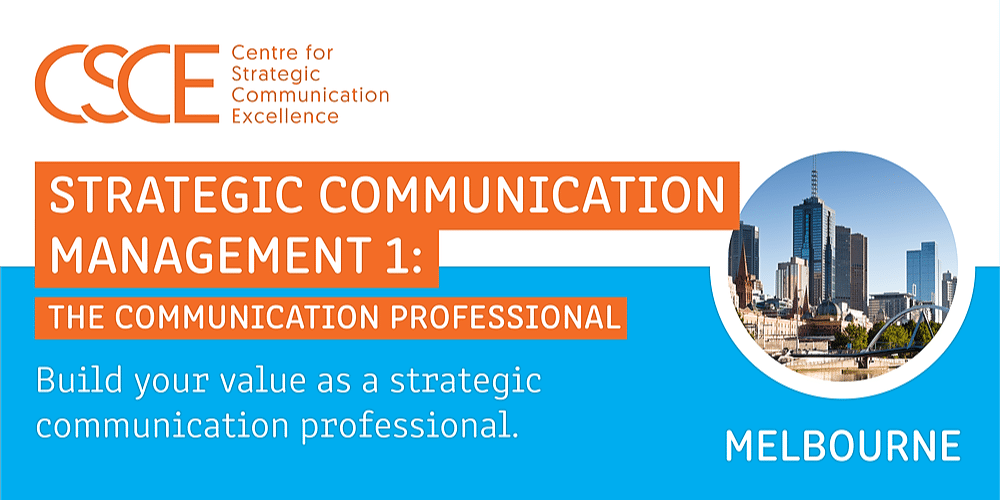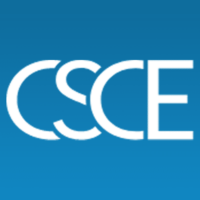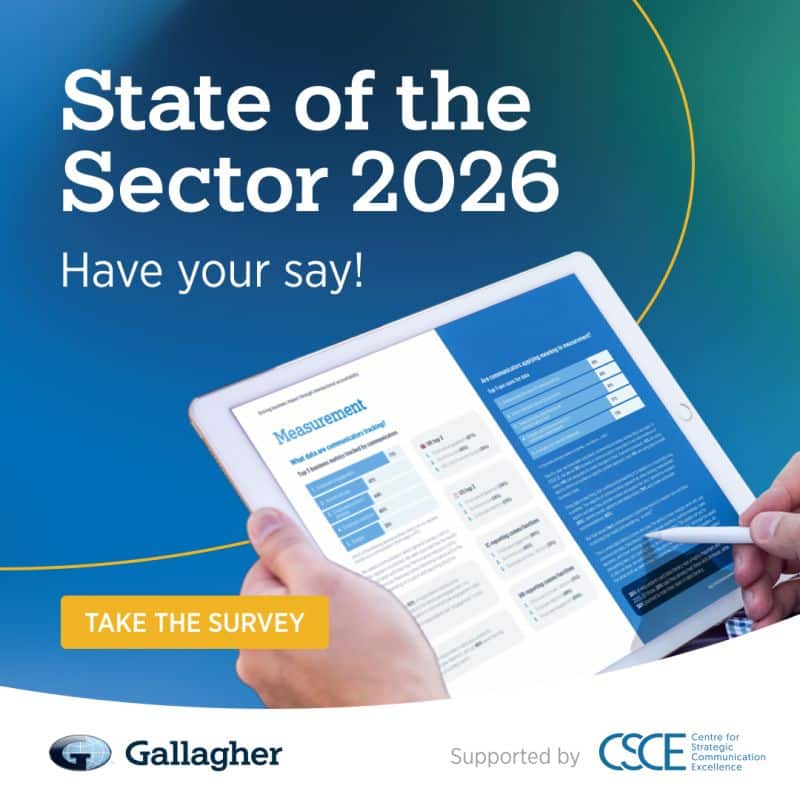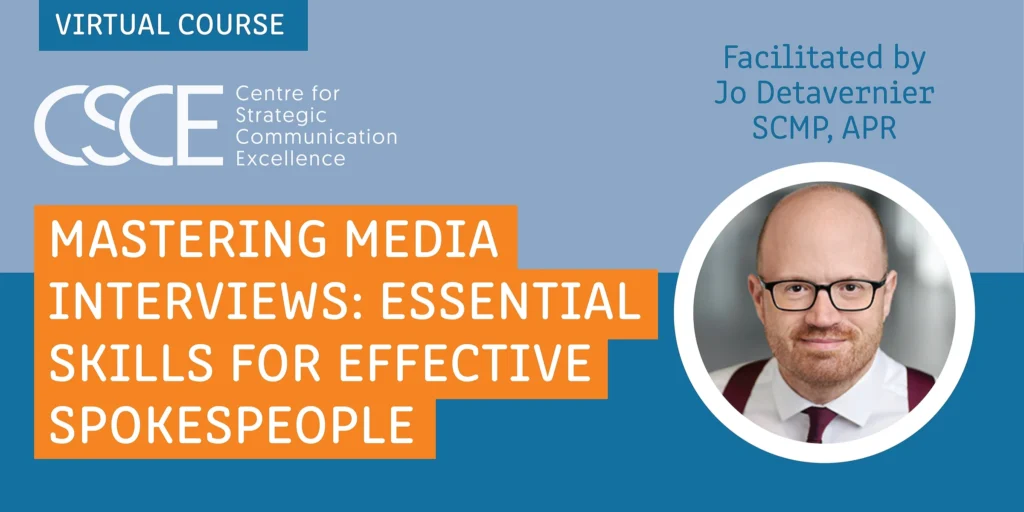Adrian's Thoughts on Responsible AI Usage
|
As we step further into artificial intelligence (AI), it's becoming increasingly apparent how much this technology is reshaping the communication profession. The Organisation for Economic Co-operation and Development (OECD) laid down principles in 2019, aiming to guide us towards innovative and trustworthy AI, emphasising the respect for human rights and democratic values. This guidance feels more relevant today as we witness the surge in AI adoption, advancements, and the growing emphasis on ethical considerations within our field.
|
Image created by OpenAI's DALL·E.
|
The Centre for Strategic Communication Excellence (CSCE) has recently crafted a guide that speaks volumes about the responsible incorporation of AI in communication. It’s not just about using AI; it’s about integrating it in ways that uphold our professional ethics and values. These ethics and standards for our profession have been around through the guidance of the Global Alliance for Public Relations and Communication Management and the work of IABC and the development of the Global Standard for the Communication Profession.
AI is not a distant future; it's our present, deeply intertwined with how we strategise and create content. However, as we navigate this AI-enhanced landscape, we're faced with the responsibility to harness its power without compromising on transparency, fairness, or ethics.
The Essence of Responsible AI in Communication
Responsible AI in the communication profession is about adhering to legal and ethical standards, ensuring privacy, and maintaining the human touch in our digital interactions. It's about enhancing our communication outcomes while being mindful of the potential risks and biases.
The guide from CSCE, which I am proud to have been a part of its development through the work of our AI Forum (free forum for communication professionals). Provides ten principles that provide a comprehensive framework for employing AI responsibly. These include advocating for a human-centric approach, ensuring transparency and governance, upholding privacy and data protection, and continuously striving for improvement.
Why It Matters to Us
Incorporating AI responsibly is pivotal in maintaining our audiences' trust and demonstrating the strategic value of communication within our organisations. It pushes us to think beyond the immediate benefits of AI, urging us to consider its long-term implications on ethics, inclusivity, and societal impact.
Looking Ahead
As we embrace AI in our profession, let's view it as an opportunity to redefine our role and value in the digital era. By aligning with the principles outlined by CSCE, we can navigate the AI revolution with confidence, integrity, and a forward-thinking approach.
The journey towards responsible AI in communication is both exciting and challenging. It invites us to be at the forefront of technological innovation, armed with a solid ethical compass, guiding our organisations and profession towards a future where technology enhances, rather than compromises, our human values.
Let's continue this journey together, with responsibility as our guiding star.
|
Charu Raizada: Redefining Corporate Narratives with ESG Communications
|
Zooming back to 2015, the notorious Dieselgate scandal involving Volkswagen instantly springs to mind as a real-life example of a company facing severe criticism for its mishandling of ESG communications. Despite vigorously promoting itself as an environmentally conscious entity and stressing its unwavering commitment to sustainability, Volkswagen’s actions spoke louder than its words. The company found itself entangled in a scandal that not only inflicted harm on the environment by permitting vehicles to emit pollutants well beyond regulatory thresholds but also dealt a significant blow to its reputation, eroding trust among both consumers and investors.
|
This episode is not an isolated incident. ExxonMobil faced accusations of downplaying the risks associated with climate change and providing misleading information to shareholders and the public about its environmental impact.
|
Wells Fargo faced severe criticism for its handling of social and governance issues, especially in the aftermath of multiple scandals involving unethical sales practices, such as the unauthorised opening of accounts for customers. Similarly, Facebook has been scrutinised for its approach to social responsibility and governance, particularly concerning privacy and data protection. These examples underscore the critical importance of transparent and honest communication when it comes to ESG efforts.
|
A View From the Top
Episode 41 – Michael Nord, SCMP
|
This is Adrian Cropley’s second interview with Michael Nord, who shares his journey from the armed forces to communication advisor, emphasising the skills he gained in the military that aided his corporate success. He highlights his time at Philips and his role in high-tech PR, stressing the importance of aligning communication efforts with corporate strategy and leveraging data and AI for insights. Michael shares his advice with communication professionals to help them enhance their listening skills, build relationships, and integrate technology into their strategy. This episode offers invaluable insights into strategic, technology-driven communication practices, especially as we move deeper into the world of AI.
|
Prioritising Holistic Health
|
How can organisations create a workplace that prioritises physical, mental, social, and spiritual health?
McKinsey & Company recently released insights from a new McKinsey Health Institute survey about health in the workplace. The survey of over 30,000 employees from 30 different countries, found that positive work experiences correlate with better overall health, increased innovation, and improved job performance.
|
The key findings include:
- More than half of employees across 30 countries reported positive holistic health (an individual’s mental, physical, spiritual, and social health.)
- Interventions at organisational, team, job, and individual levels can enhance employee holistic health. Examples include flexible working policies, leadership training, job redesign, and digital wellness programs.
- Meaningful work and adaptability are top drivers of holistic health, while toxic workplace behaviour is strongly associated with burnout symptoms.
It's clear that supporting employee health is more than a moral responsibility but also a strategic one. You can read the entire article here.
|
CSCE Fellow Announcement - Rob Briggs
|
Edinburgh based Rob Briggs is a highly experienced internal communications leader with a successful track record in developing and implementing change and communications programmes for large, complex organisations. Rob has been recognised by the Centre for Strategic Communication Excellence and his peers for his leadership and contribution to the body of knowledge within the communication profession. He has a long and outstanding career, working at the senior level as a trusted advisor.
|
Rob’s impressive track record as a volunteer with the International Association of Business Communicators (IABC), including as Chairman of the Europe and the Middle East Board, demonstrates his commitment to fostering professional development. His strategic approach in reactivating the IABC’s dormant chapter in the Netherlands attests to his ability to mobilise teams and drive membership growth.
Rob’s contributions to the communication profession’s body of knowledge are substantial. As an author of key chapters in industry-leading textbooks such as the IABC Guide for Practical Business Communication and the IABC Handbook of Organizational Communication, he has elevated best practices in organisational communication and corporate social responsibility. His extensive speaking engagements at international conferences and interviews for industry podcasts and articles underscore his role as a thought leader.
|
Beyond his contributions to the profession, Rob’s impact on organisations is palpable. Testimonials from his colleagues, commend his exceptional skills in change management, emphasising his rapid value delivery, ability to seamlessly integrate into teams, and proficiency in written and verbal communication. He was quoted by a peer as a “Change Management Swiss Army Knife”
“Rob Briggs exemplifies the qualities sought in a CSCE Fellow through outstanding leadership, significant contributions to the profession’s knowledge, and impactful career advancements. His multifaceted expertise and unwavering commitment make him an ideal candidate for this prestigious designation,” says Sia Papageorgiou, Managing Partner, Centre for Strategic Communication Excellence.
Congratulations Rob!
|
Join us for the next Mental Wellbeing Forum
March 26, 2024, 6:00 p.m. EST/ Wednesday 27 March from 10:00 a.m. AEDT
|
Join us for the next Communicating AI Forum
March 14, 2024, 6:00 p.m. EST / March 15, 2024, 10:00 a.m. AEDT
|
THRIVE Luxury Wellbeing Retreat for Business Leaders (Ubud, Bali)
October 20 2024, 12:00 p.m. - October 26 2024, 11:00 a.m. WIT
|
Strategic Communication Management 1: The Communication Professional (Melbourne)
|
Date and time
Tue 16th Apr 2024, 9:00 am - Wed 17th Apr 2024, 5:00 pm AEST
|
Location
Cliftons Melbourne - Collins Street
1/440 Collins St, Melbourne VIC 3000, Australia
|
This two-day course teaches communication professionals how to plan and implement communication initiatives grounded in business thinking that adds greater value to stakeholders and deliver business results. From analysing the business environment to defining needs, segmenting audiences and delivering measurable outcomes, you'll walk away with the tools and techniques to build your credibility as a trusted in-demand communication professional.
Course Outline:
• Day 1: Understanding business needs, setting SMART objectives, audience segmentation.
• Day 2: Crafting key messages, tactical implementation, measuring impact, personal branding.
|
This course is part of a series, you can learn more below.
|
Strategic Communication Management 2: Strategic Advisor (Melbourne)
|
Strategic Communication Management 3: Business Leader (Melbourne)
|
|






